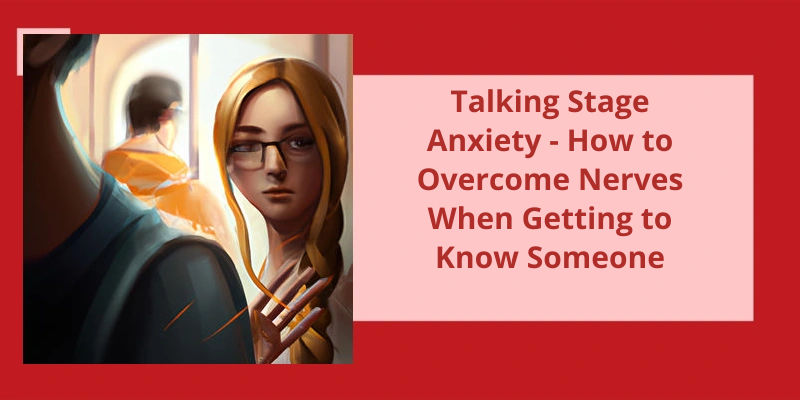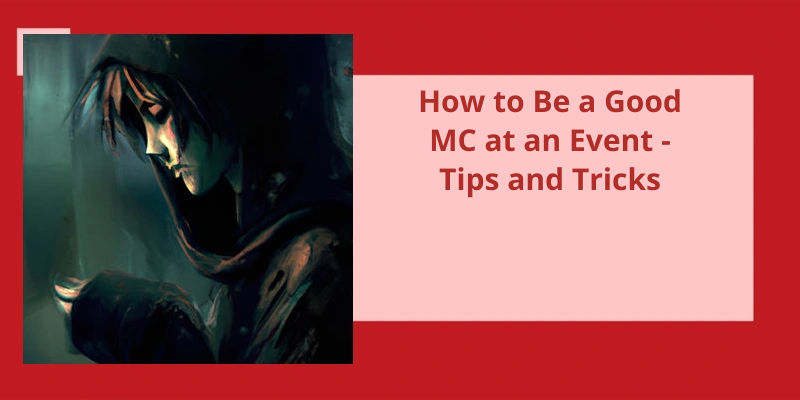We take months, even years, to decide if we're officially dating someone, or if we're just "hanging out." Meanwhile, anxiety builds and expectations are set, all while communication is lacking. The talking stage is a minefield of mixed signals and unspoken expectations, resulting in a plethora of questions and doubts. Will they introduce me as their partner? Are we exclusive? Is this going anywhere? The uncertainty of the talking stage can be overwhelming, leading to feelings of anxiety and insecurity. In fact, many individuals find themselves stuck in this limbo, paralyzed by the fear of rejection or the unknown. Talking stage anxiety is a real issue that needs to be addressed, because it can destroy some of the best relationships before they even have a chance to begin.
Is It Normal to Feel Anxious During the Talking Stage?
It’s perfectly normal to feel anxious during the talking stage because it’s a time when you’re trying to figure out if the other person is interested in you and how much you’re interested in them. You’re also trying to figure out what the other person is looking for in a partner, whether they want something serious, casual, or just someone to hang out with. All of these uncertainties can cause you to feel anxious and stressed.
Another reason why the talking stage can be stressful is that it’s a time when you’re trying to make a good impression on the other person. You want them to like you, and so you may feel pressure to be the best version of yourself. You may worry about saying the wrong things, doing something embarrassing, or not being attractive enough for them.
The talking stage can also trigger anxious thoughts and feelings because it’s a time when you’re opening up to someone and being vulnerable. You may worry about getting hurt, rejected, or judged by the other person. You may also worry about revealing too much about yourself too soon or not revealing enough and seeming aloof.
One way to cope with anxiety during the talking stage is to focus on yourself and what you want out of the relationship. Be honest with yourself about your own intentions and boundaries, and be clear about what you’re looking for in a partner. This can help you feel more confident in your interactions with the other person and reduce the pressure to impress them.
It’s also important to communicate openly and honestly with the other person during the talking stage. Dont be afraid to ask them questions and share your own thoughts and feelings. This can help you build trust and intimacy, which can make the relationship stronger and more fulfilling.
Ultimately, remember that the talking stage is just a part of the dating process, and it’s okay to feel anxious or uncertain at times. Try to enjoy getting to know the other person and have fun exploring your connection together. With patience, communication, and self-awareness, you can navigate the talking stage with confidence and ease.
Tips for Managing Anxiety During the Talking Stage
During the talking stage, anxiety can be a common experience for some individuals. To manage anxiety during this stage, it may help to engage in deep breathing exercises, practice positive self-talk, and focus on the present moment. It can also be beneficial to prioritize self-care and seek support from trusted friends or professionals.
While performance anxiety is often associated with stage fright, it can also occur in a variety of other situations. For some individuals, this anxiety may be extreme enough to constitute social anxiety disorder, impacting multiple aspects of their daily life.
What Is the Fear During Talking Stage?
Performance anxiety is a common experience for many individuals during the talking stage. It’s a feeling of apprehension or nervousness that often arises when a person is expected to perform in front of others. This can manifest in many different forms, such as public speaking, presenting or performing in front of a group, or even talking to someone new.
Stage fright is a specific type of performance anxiety that’s commonly associated with performing on stage, but the feeling can occur in many different contexts. It’s a normal human response to stress or pressure, and in moderate amounts, it can actually help to improve performance. However, when it becomes excessive, it can have a negative impact on performance and interfere with daily life.
Performance anxiety can range from mild nervousness to severe anxiety and panic attacks. At it’s most severe, it can be debilitating and prevent individuals from performing in the way they want or need to. It can also have a significant impact on mental health, leading to feelings of shame, embarrassment, and self-doubt.
It’s important to address these underlying factors in order to effectively manage the anxiety.
Treatment for performance anxiety may involve a combination of therapy, medication, and self-care techniques. Cognitive-behavioral therapy is a common form of therapy that can help individuals learn to identify and challenge negative thoughts and beliefs that may be contributing to their anxiety. Medication is often used to help manage specific symptoms, such as anxiety and panic attacks.
With the right tools and strategies, individuals can learn to manage their anxiety and perform to the best of their abilities.
Source: Why is the talking stage so stressful?..
Navigating the talking stage can be a confusing and frustrating experience for many. This phase before a relationship begins is known for it’s intentional ambiguity, emotional exhaustion, and lack of clear definitions. The term “talking stage” itself is often used in a vague and undefined way, adding to the confusion. However, understanding the problems with the talking stage can help individuals be more aware of the challenges they may face when trying to establish a new relationship.
What Is the Problem With the Talking Stage?
The talking stage is typically defined as the period in a relationship where the two individuals are still getting to know each other and determining if they want to move forward with a more committed relationship. However, this period has become increasingly problematic due to the lack of clarity regarding it’s expectations and boundaries. It’s not uncommon for individuals to find themselves in this stage for a prolonged period of time, without any clear indication of where the relationship is heading.
One of the biggest problems with the talking stage is the emotional toll it takes on individuals. It can be exhausting to constantly navigate uncertainties around someones feelings or intentions, which can lead to anxiety and stress. This uncertainty can also lead to people playing games or engaging in manipulative behavior to try to get the upper hand in the relationship, further complicating matters and causing unnecessary emotional stress.
Further adding to the confusion of the talking stage is the fact that it’s become increasingly common to engage in multiple simultaneously. People may be talking to multiple potential partners at once, making it even harder to determine who’s serious about pursuing a relationship and who’s just playing the field. This can lead to hurt feelings and jealousy as it’s unclear where one stands in the relationship.
When it comes to relationships, the early stages can be both exciting and nerve-wracking. The talking stage, in particular, brings a unique mix of emotions as two people get to know each other on a more personal level. It’s a time when everything feels new and exciting – when small gestures and flirtatious banter can make your heart skip a beat. In this article, we explore the nuances of the talking stage and how people experience it differently.
How Do People Feel During the Talking Stage?
The talking stage is an incredibly exciting time in the beginning phases of a romantic relationship. It’s a time of anticipation, where you get to know each other on a deeper level, and explore the potential for something more. During this stage, people tend to feel heady and full of emotion, and often find themselves experiencing the sensation of butterflies in their stomach.
There may be moments of self-doubt and insecurity, as you question whether or not the other person is truly interested in you, and whether or not you’re truly compatible. These feelings can be overwhelming, and can lead to a sense of emotional turbulence that can be difficult to navigate.
It’s important to make sure that the talking stage is a fun and enjoyable experience for both parties involved. If it feels forced or uncomfortable, then it might not be the right fit. In the next part of this article, we’ll explore some helpful tips to ensure that the talking stage is an enjoyable and beneficial process.
What Should the Talking Stage Feel Like?
Additionally, the talking stage should feel honest and authentic. It’s important that both parties are being genuine about who they’re and what they want. There should be no hidden agendas or secrets. Trust is key in any relationship, even at the beginning stages of the talking stage.
It’s also important for both parties to be actively listening to each other. This means not just hearing the words being said, but really taking them in and trying to understand where the other person is coming from. Active listening also involves asking follow-up questions and showing genuine interest in the other persons life.
Another aspect of a successful talking stage is mutual respect. Both parties should feel respected and valued in the relationship. This means no belittling or demeaning language, no trying to one-up each other, and no ignoring each others boundaries or needs.
Finally, the talking stage should feel exciting and fun. While there may be nerves and jitters, overall the experience should be enjoyable for both parties. This means laughing together, trying new things, and embracing the moment. You don’t have to have everything figured out just yet, but you should be excited to see where things go.
How to Know When It’s Time to Move on From the Talking Stage
- Your communication has become one-sided or inconsistent.
- You’re constantly questioning the person’s interest in you.
- You’ve different relationship expectations and goals.
- You’ve been talking for an extended period of time without progressing towards a committed relationship.
- You feel emotionally drained or unsatisfied with the current dynamic.
- You aren’t excited about or looking forward to seeing the person.
- You’ve met someone else who you’re interested in pursuing a relationship with.
- You’ve had a disagreement or conflict that hasn’t been resolved.
- Your gut is telling you it’s time to move on.
It’s important to understand that the talking stage can only take you so far in a relationship. While it’s a great way to get to know someone, it’s not meant to be a long-term solution. In fact, staying in the talking stage for too long can actually do more harm than good. If you’re curious about what happens when you stay in the talking stage for too long, keep reading.
What Happens if You Stay in the Talking Stage for Too Long?
A situationship is a complicated relationship that often leaves one or both parties feeling unsatisfied and unfulfilled. This type of relationship is marked by mixed signals, lack of clarity, and a general sense of confusion.
Another reason why you shouldnt stay too long in the talking stage is that it can create false expectations. When you spend too much time talking to someone without making any commitment or taking things to the next level, it’s easy to start imagining a future together. However, if youre not careful, these expectations can quickly become unrealistic and unhealthy. This can lead to disappointment, frustration, and an overall sense of disillusionment.
Staying in the talking stage for too long can also lead to a lack of intimacy. Intimacy is an essential part of any healthy relationship, but it’s hard to develop it when youre just talking to someone. Without physical touch and closeness, it’s easy to feel disconnected and emotionally distant. This can be especially challenging for people who crave closeness and affection.
How to Define the Relationship When You’ve Been in the Talking Stage for a While
- Discuss your expectations and goals for the relationship
- Define the level of commitment you’re comfortable with
- Talk about your feelings and where you see the relationship going
- Set boundaries and communicate your needs
- Be open to compromise and negotiation
- Consider seeking the help of a therapist or counselor if needed
Conclusion
The fear of being vulnerable and getting hurt is what fuels talking stage anxiety. We’re so caught up in trying to protect ourselves that we forget the potential for deep connection and happiness that comes with honest communication. It's time to break the cycle and start having those difficult conversations. We need to be brave enough to put ourselves out there and open up about our feelings. Our relationships deserve the effort and honesty that comes with genuine communication. It's time to stop "talking" and start really talking.






